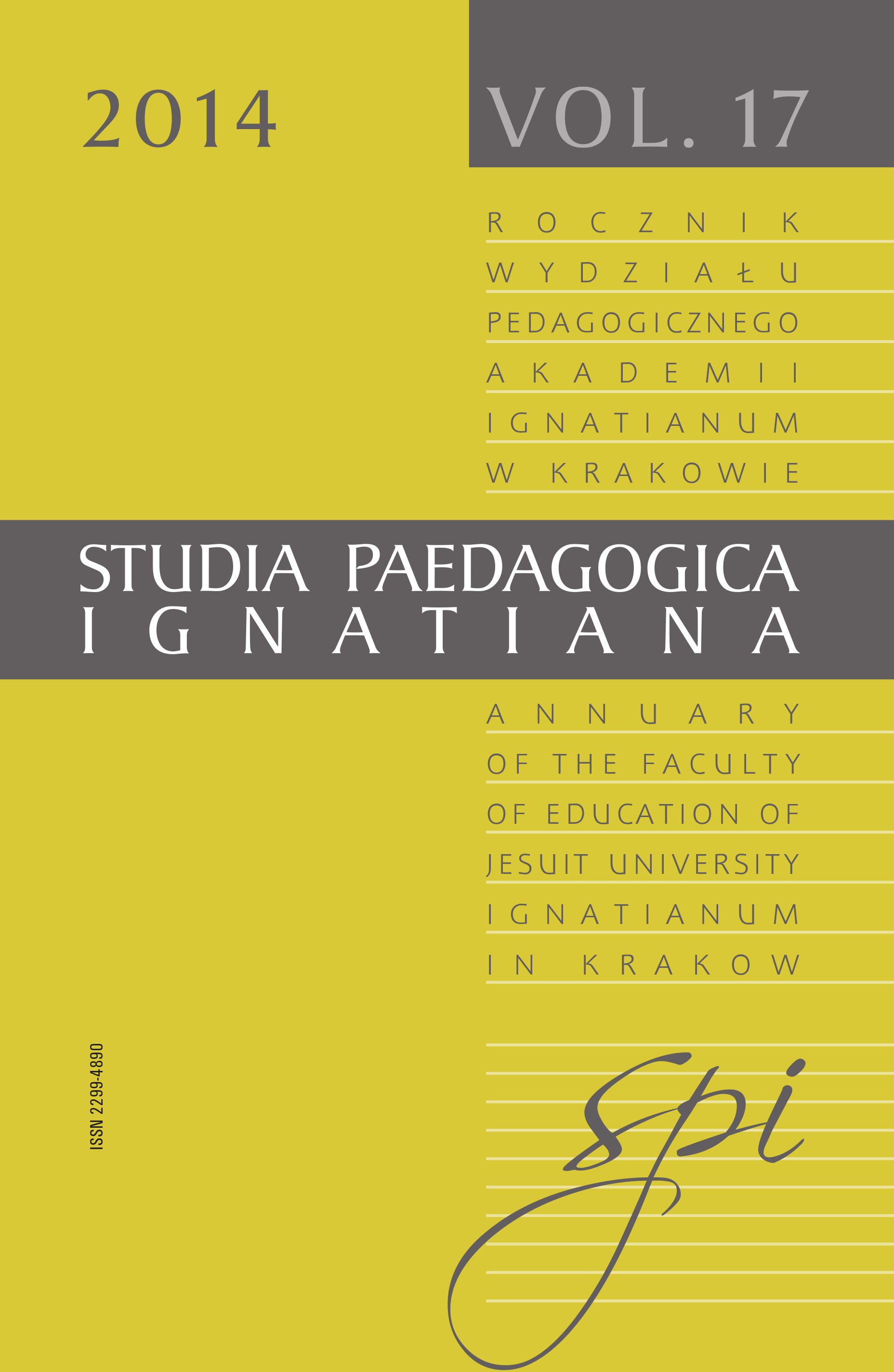Happiness as a P hilosophical and Psychological Problems
DOI:
https://doi.org/10.12775/SPI.2014.007Keywords
happiness, philosophy, psychology of happinessAbstract
The issue of happiness as the subject hasn’t been quite popular in psychology, sociology. Now it is becoming the motive of considerations and empirical studies. Human happiness theme is present in many philosophical considerations, although it should be noted that the understanding is diverse, multi-threaded, divergent and often extreme. This situation makes the establishment of criteria and set in order philosophical theories on happiness appears to be very difficult task. This article presents selected theories on happiness from the history of philosophy, with reference to issues of contemporary psychology of happiness. Reference was made to the oldest philosophical thoughts of Socrates, Plato, Aristotle. Drew attention to the hedonistic pleasures theme by Aristippus, Epicurus, as well as extremely different view of St. Augustine, St. Thomas Aquinas and Spinoza based on the assumption that the source of happiness is God. It also presents issues of focus on one’s own well-being by Hobbes and the importance of utilitarian value. Opportunity to explore the knowledge as the greatest happiness of man was the result of the dynamic development of science. With regard to the pessimistic trend in the philosophy of Schopenhauer and Sartre issues of unhappiness considered as inherent in human existence. Aspects of philosophical issues were enriched with issues of psychology. Reference was made to the structural model of Czapiński and empirical researches on determinants of individual happiness.
References
Argyle M., The Psychology of Happiness, Methuen, London 1987.
Arystoteles, Etyka nikomachejska, przeł. D. Gromska, PWN, Warszawa 1956.
Bocheński J., Zarys historii filozofii, Wydawnictwo Philed, Kraków 1993.
Czapiński J., Psychologia szczęścia. Przegląd badań i zarys teorii cebulowej, „Akademos”, Warszawa – Poznań 1992.
Epikur, List do Menoikeusa w: Diogenes Laertios, Żywoty i poglądy słynnych filozofów, przeł. I. Krońska, K. Leśniak, W. Olszewski, PWN, Warszawa 1988.
Hersch J., Wielcy myśliciele Zachodu. Dzieje filozoficznego zdziwienia, przeł. K. Wakar, Pruszyński
i S-ka, Warszawa 2001.
Kaszyński K., Wybrane elementy filozofii człowieka, Wydawnictwo UZ, Zielona Góra 2002.
Kołakowski L., O co pytają nas wielcy filozofowie, Znak, Kraków 2004.
Marek Aureliusz, Rozmyślania, przeł. M. Reiter, PWN, Warszawa 1958.
Mill J.S., Utylitaryzm. O wolności, przeł. A. Kurlandzka, Warszawa 1959.
Sarnowski S., E. Frykowski, Problemy etyki. Wybór tekstów, Agencja Marketingowa „Branta”, Bydgoszcz 1993.
Seneka, Listy moralne do Lucyliusza, przeł. W. Kornatowski, PWN, Warszawa 1961.
Starzyńska-Kościuszko E., Filozoficzne koncepcje człowieka, Wyższa Szkoła Pedagogiczna TWP w Warszawie, Warszawa 1996.
Tatarkiewicz W., Historia filozofii, t. 1: Filozofia starożytna i średniowieczna, Wydawnictwo Naukowe PWN, Warszawa 1997.
Tatarkiewicz W., Historia filozofii, t. 2: Filozofia nowożytna do roku 1830, Wydawnictwo Naukowe PWN, Warszawa 1997.
Tatarkiewicz W., Historia filozofii, t. 3: Filozofia XIX wieku i współczesna, Wydawnictwo Naukowe PWN, Warszawa 1997.
Tatarkiewicz W., O szczęściu, wyd. 3, PWN, Warszawa 1962 [wyd. 7, PWN, Warszawa 1979].
Tomasz z Akwinu, Summa teologiczna (Contra Gentiles), cz. 1, t. 3, przeł. Z. Włodkowa, Nakładem „Wiadomości Katolickich”, Kraków 1933.
Veenhoven R., Conditions of Happiness, Reidel, Dordrecht 1984.
Downloads
Published
How to Cite
Issue
Section
License
By submitting an article, the author declares that:
they are the author of the article (hereinafter referred to as the Work) and:
- is entitled to exclusive and unlimited copyright to the Work,
- is entitled to dispose of the copyrights to the Work.
The Author grants the Jesuit University Ignatianum in Cracow a free, non-exclusive, territorially unlimited license to use the Work in the following fields of exploitation:
- publishing the Work in paper, digital or magnetic form;
- multiplying the work by any method, without limiting the number of editions or copies;
- distribution of the work and its copies in any form, including marketing, sales, lending, and lease;
- placing the work in a computer memory;
- distribution of the work in information networks, including the Internet;
- public performance, exhibition, display, reproduction, broadcasting and re-broadcasting, as well as making the Work available to the public in such a manner that everyone could have access to it at a time and place chosen by themselves;
- within the scope of dependent rights to the Work, covering, in particular, the right to make necessary changes to the Work, resulting from editorial and methodical preparation, as well as to make translations of the Work into other languages.
The license right shall be transferred the moment of transfer of the Work to the Jesuit University Ignatianum in Cracow. The Jesuit University Ignatianum in Cracow is entitled to grant sub-licenses to the Work in terms of the right granted. The license shall be limited in time for a period of 15 years from the date it is granted.
Stats
Number of views and downloads: 1101
Number of citations: 0



